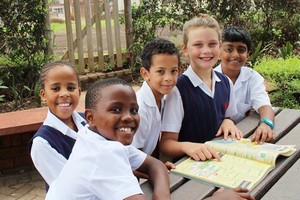Developing Context
Social Science encourages learners to look with open minds at the world beyond their own experience, viewing the History of a region the context of its Geography. And vice versa.
Building Global Perspective
We seek to convey this relationship to the children as we study human activity and its impact on Earth. Conservation and other important issues feature in our work, which involves the investigation of, for example, natural processes, physical features, resources, phenomena, and cycles.
"When I approach a child, he inspires in me two sentiments. Tenderness for what he is, and respect for what he may become."
- Louis Pasteur
Brief notes on the subjects offered at Hudson Park in the Intermediate and Senior Phases can be accessed via the menu below.
Skills Development
A subject such as Social Science requires learners to think critically, to speculate, make connections, debate, make informed choices, identify key issues, organize material, conduct research, and look at cause and effect.
They must constantly question. Who? Where? What? Why? When? How? What if? As a result, we see them develop ability in this respect and broaden their language skills. Map-drawing and map-reading skills are also acquired.

History
In History, the children study chronology and societal development. This leads to an understanding of how the past has impacted the present, and how it may be expected to influence the future, so that cause and effect can be understood and the children can begin to develop historical perspective. Attention is given to citizenship and to our heritage, as South Africans.
Geography
Geography gives us a sense of location. It is also intrinsically linked to History, since geographical location determines who will be neighbours, who will have access to natural resources, who will trade with whom, and a host of other things related to human activity.
